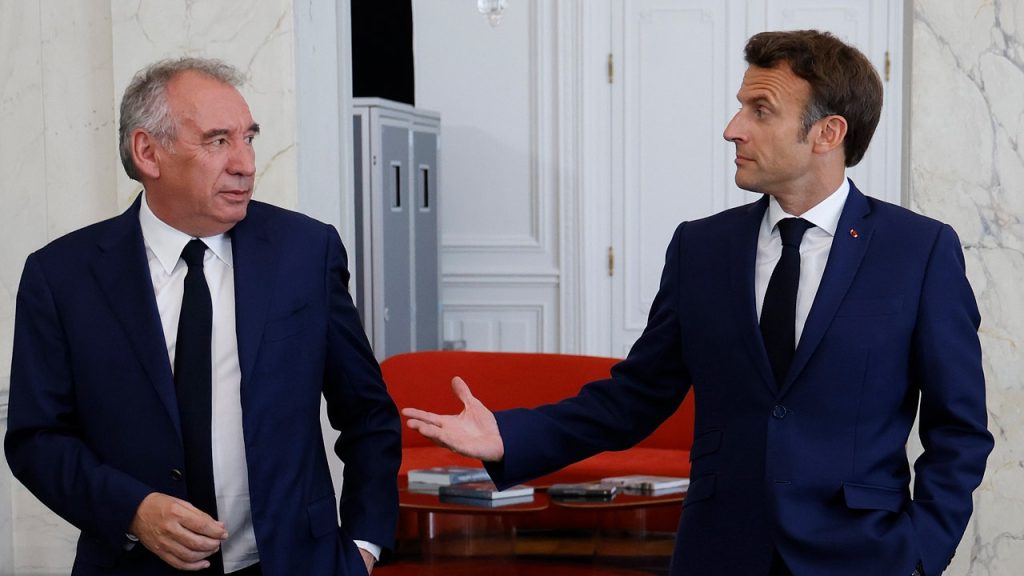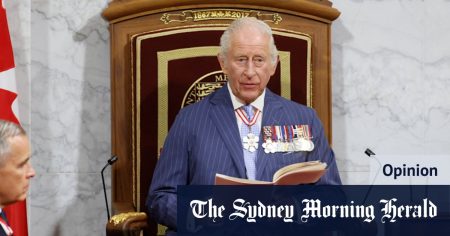Paragraph 1: Political Upheaval and the Rise of Bayrou
French politics witnessed a significant shift with the unexpected ousting of Prime Minister Michel Barnier through a no-confidence vote. This unprecedented event left France without a functioning government, prompting President Emmanuel Macron to take decisive action. He appointed François Bayrou, a seasoned centrist politician and leader of the Democratic Movement (MoDem), as the new prime minister. Bayrou’s extensive political experience, spanning decades, was deemed crucial for navigating the turbulent political landscape and restoring stability. The no-confidence vote against Barnier stemmed from contentious budget disputes within the National Assembly, highlighting the fragmented nature of French politics and the challenges facing any incoming administration.
Paragraph 2: Macron’s Strategic Maneuvering
President Macron, determined to maintain control and see his term through to 2027, faced a challenging parliamentary arithmetic. His centrist alliance lacked a majority in the National Assembly, meaning Bayrou’s cabinet would need to forge alliances with moderate lawmakers from both the left and the right to secure its survival. This delicate balancing act aimed to prevent the far-right National Rally party, led by Marine Le Pen, from gaining undue influence over the government. Le Pen had played a pivotal role in Barnier’s downfall, joining forces with left-leaning parties to pass the no-confidence motion. Macron’s strategy also involved pursuing a non-aggression pact with the Socialists, seeking their commitment to refrain from supporting future no-confidence motions.
Paragraph 3: Bayrou’s Political Journey and Alliance with Macron
François Bayrou, a prominent figure in French politics, brought a wealth of experience to his new role as prime minister. He founded the MoDem party in 2007, establishing himself as a key player in the centrist political landscape. Bayrou’s alliance with Macron dates back to the 2017 presidential election, where he provided crucial support that helped propel Macron to victory. He was subsequently appointed justice minister but resigned shortly after amid an investigation into alleged embezzlement of European Parliament funds by MoDem. However, Bayrou was later cleared of all charges in 2024, paving the way for his return to the forefront of French politics.
Paragraph 4: Navigating the Complexities of French Politics
Bayrou’s appointment as prime minister signifies Macron’s attempt to build a broader base of support and navigate the increasingly complex and fragmented political landscape. The absence of a clear parliamentary majority necessitates the formation of alliances and compromises across the political spectrum. This intricate political maneuvering is crucial for ensuring the stability of the government and preventing it from being vulnerable to further no-confidence motions. Bayrou’s experience and established relationships with various political factions are expected to be instrumental in navigating these challenges and building a functional coalition.
Paragraph 5: Addressing the Far-Right Threat and Seeking Stability
Macron’s strategic focus on containing the influence of Marine Le Pen and the National Rally party underscores the significant threat posed by the far-right in French politics. By seeking alliances with moderate lawmakers from both the left and the right, Macron aims to create a bulwark against the far-right’s growing power. This approach reflects a broader concern about the potential for political instability and the need to forge a more cohesive and unified government. The non-aggression pact with the Socialists is a key element of this strategy, designed to provide a measure of stability and prevent further disruptions to the government’s agenda.
Paragraph 6: Charting a Course for the Future
As Bayrou assumes the role of prime minister, he faces the daunting task of assembling a cabinet capable of addressing the pressing challenges confronting France. The need to secure support from diverse political factions will require skillful negotiation and compromise. The success of Bayrou’s government hinges on its ability to forge a cohesive and effective governing coalition, capable of delivering on its promises and navigating the complexities of French politics. The coming months will be crucial in determining whether Bayrou and Macron can succeed in stabilizing the government and charting a course for a more stable and unified political future.










